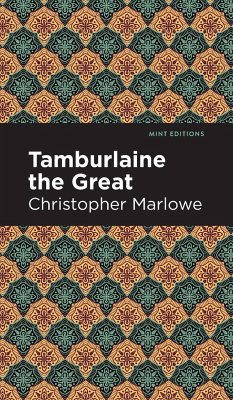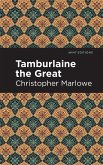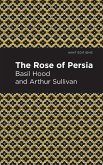Separated into two parts, Christopher Marlowe's Tamburlaine the Great follows the conquests of an outlaw who slowly rises to power through extreme displays of aggression. When Mycetes, the king of Persia, complains to his brother, Cosroe, about a group of outlaws that were causing trouble, Cosroe claimed that Mycetes was weak, and that a king shouldn't have such a problem. In response, Mycetes sends out a powerful soldier to kill the leader of the outlaws, Tamburlaine. Though the soldier's army was twice the size of Tamburlaine's, the outlaw was hardly discouraged. Using his wit and charm, Tamburlaine attempts to convince the soldier to convert to his side, merging the two armies. As Tamburlaine grows stronger, he gains new allies, such as his clever wife, Zenocrate. Though he seemed to be just a petty outlaw at first, the leaders of prominent Eurasian countries become increasingly concerned as Tamburlaine slowly overcomes armies and nations with force, manipulation, and unlikely alliances. As his makeshift armies continue to challenge elite armed forces, countless lives are at stake as Tamburlaine's bloody ambition only grows. When first released, Tamburlaine the Great both fascinated and disgusted the 16th century audience. Gaining a mix of fame and infamy, Tamburlaine the Great is praised for its masterful imagery and language, enchanting audiences with its drama. However, Marlowe still received criticism for the play's suspected atheist undertones and the violence associated with the play, both real and depicted. With strong themes of humanism, Tamburlaine the Great celebrates the accomplishments of Tamburlaine with little regard to the character's cruelty and aggression, creating a thought-provoking narrative that stays with readers long after the play's conclusion. Often referenced in prominent literary works, Tamburlaine the Great remains relevant with radio and film adaptations, and is still performed in theatres around the world. This edition of Tamburlaine the Great by Christopher Marlowe is now presented in an easy-to-read font and features a striking new cover decision, creating an accessible reading experience. With these accommodations, Tamburlaine the Great is restored to modern standards while the original genius and vivid imagery of Marlowe's poetry is preserved. Since our inception in 2020, Mint Editions has kept sustainability and innovation at the forefront of our mission. Each and every Mint Edition title gets a fresh, professionally typeset manuscript and a dazzling new cover, all while maintaining the integrity of the original book. With thousands of titles in our collection, we aim to spotlight diverse public domain works to help them find modern audiences. Mint Editions celebrates a breadth of literary works, curated from both canonical and overlooked classics from writers around the globe.
Hinweis: Dieser Artikel kann nur an eine deutsche Lieferadresse ausgeliefert werden.
Hinweis: Dieser Artikel kann nur an eine deutsche Lieferadresse ausgeliefert werden.









